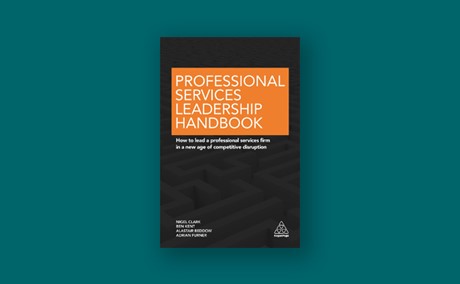Many consulting and advisory firms help their clients to become more customer-focused. The most successful firms also apply these principles to their own organisation, say Alastair Beddow and Nigel Clark
Organisations that listen and respond to the needs of their customers are best-placed to adapt and grow in disruptive and competitive markets. This is one of the guiding principles for consultants when advising their own clients on strategy and transformation projects. Yet not all consulting firms apply the same principle in a consistent and compelling way to their own strategy, organisation design or client relationships.
Over the last decade the most successful consulting firms have put a focus on clients at the centre of their business. It is for this reason that client service and value underpins three of the MCA’s nine Consulting Excellence principles. In our experience only a small number of advisory firms can lay claim to a true commitment to client-focus. Many others use the language of client-centricity in their pitches or on their website but this does not lead in practice to a differentiated or improved experience for clients.
With the consulting market itself facing significant disruption and competition – from technology, business model change, and a younger generation entering the workplace – it is more important than ever that advisory firms are positioned to respond to their clients’ changing needs.
What sets the most client-focused consulting firms apart from their peers? In our view the most successful leaders within advisory firms embed client-focus as a core capability throughout their firm’s strategy, processes and culture. Our book, Professional Services Leadership Handbook, contains case studies of firms that have made a commitment to measure and improve the client experience.
Forward-thinking leaders we interviewed can articulate a clear vision of the client segments in which their firm has genuine competitive advantage, and how they wish to work with these clients. They use techniques such as client feedback, client journey mapping and thought leadership to identify the needs and challenges facing potential buyers of their services. They then use that insight to describe how the firm can address that client’s needs in language that focuses on them.
Successful leaders have also shifted the supporting infrastructure of their firm to align to known client needs. For example, they ensure that business development and marketing time and spend is aligned with strategic client segments, not to practice areas or technical disciplines. They also make efforts to encourage professionals from different areas of the firm to identify ways of collaborating on client projects. Successful firms also invest in learning and development to support their fee-earners to hone their client service skills, not just their technical knowledge.
Firms that have made these kinds of changes are reaping rewards. To give one example, in our book we explain how Grant Thornton International Limited (GTIL) has made a coordinated effort to improve the consistency of its client experience, particularly for clients that work with them across more than one jurisdiction.
By mapping out the client journey from both the client and fee-earner perspective, GTIL has developed a better understanding of the moments where clients might have suboptimal experiences, and where there are opportunities to add more value. Armed with this insight, the firm has defined a series of minimum service standards for clients, developed bespoke learning and development programmes, and encouraged all member firms to measure and report client experience metrics.
GTIL’s Prity Kanjia says:“Once you become known as a firm that delivers excellent client service, people want to work with you again and again.”
A firm’s culture does not become client-focused overnight. But leaders can accelerate this change by giving clear examples of the client-focused behaviours they expect, and the kinds of behaviours that won’t be tolerated. Successful leaders also promote through their own practice the kinds of activities that foster genuine client-focus: co-creating solutions with clients, asking for and acting on regular client feedback, and taking a long-term interest in clients beyond the immediate engagement.
The consulting firms that fail to remember the good advice they offer their own clients will quickly find themselves overtaken in a disrupted market, especially where clients place the quality of service at the top of the list of factors influencing their buying decisions.
Alastair Beddow is a Director of Meridian West, a consulting firm that helps professional firms to develop and implement client-focused strategies. Nigel Clark is Global Head of Marketing and Communications for SLR Consulting, a global environmental and advisory firm. MCA members can get a 20% discount on Professional Services Leadership Handbook when bought through Kogan Page (www.koganpage.com/pslh) and using the discount code PSLH20.

